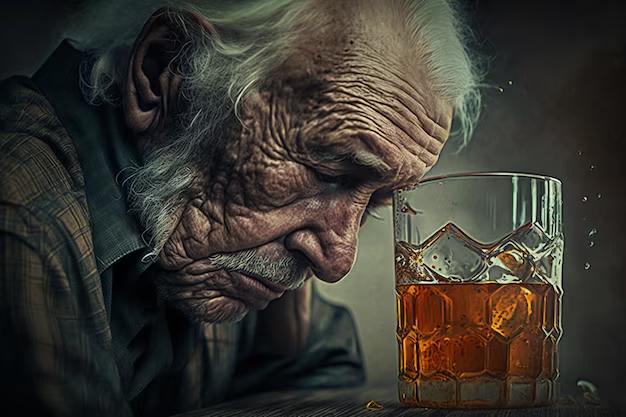Alcohol Addiction Treatment: Reclaim Your Life with Expert Care
Overcome Alcohol Addiction with Expert Care

Alcohol addiction, or alcohol use disorder, is a chronic disease characterized by the inability to control alcohol consumption despite harmful consequences. Over time, excessive alcohol use alters brain chemistry, leading to physical and psychological dependence. While some people may try to reduce their alcohol intake or quit on their own, overcoming alcohol addiction often requires professional treatment and support.
Signs and symptoms of alcohol addiction include:
- Drinking more than intended or for longer periods than planned
- Unsuccessful attempts to cut down or stop drinking
- Strong cravings for alcohol
- Neglecting responsibilities at work, school, or home due to drinking
- Continued drinking despite relationship, legal, or financial problems
- Developing a tolerance, needing more alcohol to feel the same effects
- Withdrawal symptoms such as shakiness, nausea, irritability, or sweating when not drinking
Why Choose Deaddiction and Mental Health for Alcohol Addiction Treatment?
At Deaddiction and Mental Health, we are committed to helping you achieve lasting freedom from alcohol addiction. Our compassionate team of experts uses a personalized approach, combining medical care, behavioral therapies, and holistic practices to treat the whole person—not just the addiction. We provide a safe and supportive environment where you can heal, grow, and build the foundation for a brighter, alcohol-free future.
Our Comprehensive Approach to Alcohol Addiction Treatment
At Deaddiction and Mental Health, we understand that alcohol addiction is a complex and multifaceted issue that requires a comprehensive treatment approach. Our program is designed to address the unique needs of each individual struggling with alcohol use disorder (AUD) and to provide the support necessary for successful recovery. Our holistic methodology combines medical, psychological, and social elements to ensure a well-rounded treatment experience. Below, we outline the key components of our comprehensive approach to alcohol addiction treatment.

Our Approach to Alcohol Addiction Treatment
At Deaddiction and Mental Health, we understand that alcohol addiction is a complex condition, and no two individuals experience it the same way. Our alcohol addiction treatment program is personalized to meet your specific needs, combining medical care, therapeutic interventions, and holistic practices to help you achieve lasting sobriety.
Comprehensive Assessment
The first step is a thorough assessment to create a personalized treatment plan addressing addiction causes and mental health issues.
Medical Detox for Alcohol Withdrawal
Quitting alcohol suddenly can cause dangerous withdrawal symptoms like anxiety, tremors, nausea, seizures, and severe cases like Delirium Tremens (DTs).
Behavioral Therapies for Lasting Recovery
Alcohol addiction involves emotional and psychological factors. We use therapies like CBT to help change thought patterns and manage triggers effectively.
Group Therapy and Peer Support
Group therapy at Deaddiction and Mental Health fosters community, peer support, accountability, and access to 12-Step programs like Alcoholics Anonymous (AA).
Family Counseling and Support
Family counseling helps restore trust, improve communication, and educate loved ones, creating a supportive environment to strengthen long-term sobriety.
Holistic Therapies for Mind-Body Healing
Our holistic therapies, including yoga, nutrition, fitness, and creative arts, promote overall well-being, reduce stress, and support long-term alcohol recovery.
Why Is Alcohol Addiction So Difficult to Overcome?
Alcohol addiction is notoriously difficult to overcome for several reasons, many of which stem from the complex interplay between physical dependence, psychological factors, and social influences. Understanding these challenges is essential in appreciating why many individuals struggle to quit drinking despite the negative consequences.
One of the most significant reasons alcohol addiction is hard to break is the physical dependence it creates. When someone drinks heavily and regularly, their body becomes accustomed to the presence of alcohol, adapting to its effects. Over time, the brain changes its chemistry to compensate for the constant depressant effects of alcohol, leading to physical dependence.
Even after a period of sobriety, the risk of relapse remains high for many individuals in recovery. Fear of failure can be a significant obstacle in overcoming alcohol addiction. Many people who have tried to quit in the past may feel discouraged by previous relapses or unsuccessful attempts, leading them to believe that recovery is not possible for them. This fear of relapse can prevent individuals from seeking help.
The Impact of Alcohol Addiction
Alcohol addiction, also known as alcoholism or alcohol use disorder (AUD), is a pervasive issue that affects millions of individuals and families worldwide. It encompasses a spectrum of behaviors related to excessive drinking, leading to physical, psychological, and social consequences. Understanding the impact of alcohol addiction is crucial for addressing its far-reaching effects on individuals, families, communities, and society as a whole. Below, we explore the various dimensions of alcohol addiction, including its health effects, economic costs, social implications, and broader societal impact.
Health Effects of Alcohol
Economic Costs of Alcohol
Social Implications of Alcohol
Criminal Justice Implications


